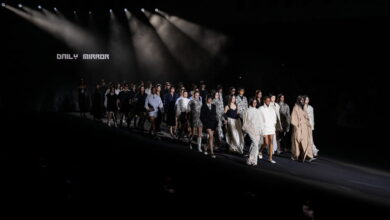지난 주 칼럼을 통해 제안한 ‘서울의 동사화’를 ‘유럽의 서울 스트라스부르’에서 온 엘자 코프(Elsa Kopf)도 지지’한다고 했더니 한 독자로부터 유럽에 무슨 수도가 있느냐는 생뚱맞은(?) 질문이 왔습니다. 물론 유럽은 하나의 주권국도 아니고 완전한 공동체도 아니기 때문에 공식적으로 수도를 지정하고 있지는 않습니다.
유럽으로 분류되는 50여개국들중 영향력이 가장 큰 나라의 도시들 – 예를 들어 독일의 프랑크푸르트나 프랑스의 파리- 중 하나를 수도로 부른다 하더라도 논란은 수그러들지 않을 것입니다. 그러나 유럽연합(EU)의 집행위원회가 있는 브뤼셀 또는 유럽사법재판소가 있는 룩셈부르크보다는 유럽의회가 있는 스트라스부르가 사실상 유럽의 수도역할을 하고 있는 것만은 부인할 수 없습니다.
![[유럽스케치 #3] 서울의 뜻, 그 뜻 그대로의 서울! 3 중세시대엔 천민들이 살던 동네였지만 잘 보존된 목조건물들이 아름다워 UNESCO 세계의 문화유산으로 지정된 스트라스부르의 쁘띠프랑스의 모습 ⒸEuroKor](https://www.fashionseoul.com/wp-content/uploads/2015/11/20151127_Iseoulu1.jpg)
수도라고 해서 꼭 규모 면에서 가장 큰 도시를 의미하는 것은 아닙니다. 그 도시가 갖고 있는 대표성과 영향력을 수도라고 하고 순수한 우리말로는 서울이라고 하지요. 새삼스럽지만 이쯤에서 서울의 뜻을 한번 되짚어보는 것도 의미 있는 일이라고 생각합니다. 우리가 당연하게 받아들이고 사는 지명이나 인명의 어원을 캐다 보면 새로운 영감과 시각을 얻게 되고, 또 그러한 관점으로 장소와 사람을 바라보면 말이 씨가 되어 실제로 그렇게 이해되기도 하기 때문입니다. 유럽식 작명법이 직관적이고 단순한 데에 비해 전통적으로 우리나라에서는 이름 속에 많은 생각과 의미를 담아 내기 때문에 곰삭일수록 우러나는 국물 같은 매력이 있습니다.
스트라스부르는 독일어로 도로를 의미하는 스트라세(Straße)와 성을 의미하는 부르크(Burg)가 합성된 지명으로 역사적으로 라인강변의 교통의 요충지에 자리한 도시였음을 말해줍니다. 이에 비해 서울은 역사적으로 훨씬 더 심오하고 복잡한 과정을 통과하여 탄생한 유서 깊은 지명입니다. 삼국시대엔 요충지인 상주를 서벌(徐伐)이라 불렀고, 3국을 통일한 신라는 수도를 서라벌(徐羅伐)이라 불렀는데 이는 순수한 우리말로 밤하늘에 반짝이는 ‘새별’ 또는 ‘샛별’을 부르는 말로 한자로는 금성(金星)이라고 쓰기도 했습니다. 물론 지리적으로 한반도의 중간에 자리한 오늘날의 서울이 수도역할을 하게 된 것은 600년전 조선시대 이후이고 그 당시엔 한성(漢城) 또는 한양(漢陽)이라는 이름으로 불렸지만 우리나라의 수도를 반짝이는 샛별, 즉 서울로 부르기 시작한 역사는 2000년 전까지 거슬러 올라가는 것입니다.
![[유럽스케치 #3] 서울의 뜻, 그 뜻 그대로의 서울! 4 아직도 많은 중국인들이 서울을 漢城이라고 부르고 있지만 지속적이고 통합적인 브랜딩으로 서울을 서울(首尔)이라고 부르는 사람들이 많아지고 있다. ⒸEuroKor](https://www.fashionseoul.com/wp-content/uploads/2015/11/20151127_Iseoulu_Seoul-booklets1.jpg)
2005년부터 서울시에서 도시 브랜딩의 일환으로 서울을 음차한 한자어인 首爾, 간체로는 首尔로 홍보하기 이전에는 서울을 받아쓸 수 있는 마땅한 한자어가 없었기 때문에 漢城이라 표기했었습니다. 그러나 10년 가까이 통합적인 브랜딩을 지속한 결과 이젠 중국인들도 서울을 서울이라고 부르고 있습니다. 한국시장에 큰 손인 중국인 관광객들이 이제라도 서울을 한성이 아닌 서울로 부르고 표기하게 된 것은 브랜딩의 기본요소인 통합성을 달성한 성공사례라고 할 수 있을 것입니다. 그러나 개인적으로 제일 맘에 드는 어원은 서울을 둘러싸고 있던 성곽을 – 한국전쟁때 대부분 파괴되고 지금은 거의 남아있지 않지만 – ‘새울타리’로 부르며 여기서 서울이라는 지명이 유래되었다는 설입니다. 대한민국을 품은 새울타리로서 또는 찬란한 새벽별과 같은 존재로서 서울이 그 이름값을 하게 되길 소망합니다. I seoul U!.
* ‘유럽스케치’는 유라시아 대륙의 동쪽 끝에 살고 있는 우리의 좌표와 방향성을 서쪽 끝에 살고 있는 유럽적 시각으로 재조명해보는 코너입니다. 필자는 유럽과 한국을 오가며 비즈니스 커넥터로 일하며 얻은 영감을 패션서울을 통해 함께 나누고자 합니다.
「유럽스케치 #1」 서울시 슬로건 I . SEOUL . U? I seoul U!
「유럽스케치 #2」 서울의 동사화(動詞化) I se♡ul U!
「유럽스케치 #3」 서울의 뜻, 그 뜻 그대로의 서울!
Ⓒ서태원 | 유로코 비즈니스 커넥터 | www.facebook.com/eurokor.seo
#본 콘텐츠는 패션서울 편집방향과 다를 수 있습니다.
「Europe Sketch #3」Meaning of Seoul, Seoul as it Means!
After I boldly made a renewed proposal on verbifying Seou last week, and receiving ratification from the renowned singer-songwriter Elsa Kopf of Strasbourg, which I mentioned as the capital of Europe, questions arrived from readers asking if there was indeed a capital of Europe. Of course, Europe has no officially recognized capital city for it is neither a sovereign state nor a political union. However most influential cities such as Frankfurt, Paris or London or any other cities from among the 50 European countries are called as the capital, the controversy will never cease. But not many will deny the fact that Strasbourg functions as de-facto capital of Europe even compared with Brussels with its headquarters of European Commission or Luxembourg with its European Court of Justice. One reason is because Strasbourg is where some of the most important decisions of Europe are made through European Parliament and Council of Europe.
A capital city does not always necessarily mean the biggest in size. The symbols represented and cultural influence of a city are also counted as factors in shaping a capital. And Korea’s capital is ‘Seoul’, an indigenous Korean word for ‘capital city’ itself. Once again, now is the right time to think about the meaning of the name ‘Seoul’. When we search and find the etymology in the name of a place so often taken for granted, we often obtain new inspiration and perspectives. “As you say and believe, so it shall be.” What we literally repeat may actually come true in life. Traditionally, names of Korean cities or landscape have more philosophical background compared to the intuitive and simple naming method of European cities. In that sense, Korean geographical nomenclature is like a traditional soup stock recipe that thickens when brewed longer.
Strasbourg is the Gallicized name of Germanic-origin Straßburg meaning “Town of roads”. The meaning of the city blandly tells us it is geographically situated at the cross-roads by the Rheine. Compared to this, Seoul has much more profound and complicated meaning owing to its years of being a capital. During the 3-Kingdom era (57 BC~668 AD) a city with strategic location had been called Seobeol(徐伐) and after Shilla unified the three Kingdoms, the capital was named Seorabeol(徐羅伐). Both Seobeol and Seorabeol meant “New Star” or “Morning Star” in pure Korean word from which the name of Seoul was originated. It is about 600 years ago since the capital of Korea was moved to where Seoul is now. Seoul is geographically situated right in the middle of Korean peninsula. But the name of Seoul as the capital can be traced back 2,000 years when it was called Seobeol meaning once again bright shining Morning Star!
There was no cognate to Seoul in Chinese letter and that’s why Seoul had been called by Chinese as Hanseong(漢城) or Hanyang(漢陽) since Joseon Dynasty (1392~1897). But Seoul Metropolitan Government started rebranding Seoul for the Chinese tourists, who are the big spenders in the Korean market. And the name was changed to 首爾 (“Shǒu’ěr” in Chinese pronunciation), written as 首尔 in simplified Chinese. Better late than never! There are still many Chinese who call Seoul the old way, but the integrated branding of Seoul has been proven to be successful.
Personally, my favorite version of the story is that Seoul originated from “Se-ultari,” literally meaning “new fence” or “new walls.” Seoul had been a walled castle city from its construction since the early 15th century until most of the walls were destroyed during the Korean War (1950-1953). Whatever the authentic etymology is, I hope Seoul will embrace people from all over the world as its honorary citizens, as a “new castle” and shine like a splendid “Morning Star” deserving its beautiful name Seoul. I seoul U!.
The ‘Europe Sketch’ embarks on a journey to review where we are and where we should go. The perspective and direction is inspired by Europe, a region located at the far western end of the Eurasian continent. The writer is a frequent traveler from the Far East to the West, serving as a business connector. Hopefully, sharing discoveries and thoughts from the two different worlds with Fashion Seoul will give another joy and inspiration to the readers.
ⒸTaewon Seo | EuroKor Business Connector | www.facebook.com/eurokor.seo
「Europe Sketch #1」 Seoul’s new slogan, I . SEOUL . U? I seoul U!
「Europe Sketch #2」 Making Seoul a verb: I se♡ul U!
「Europe Sketch #3」 Meaning of Seoul, Seoul as it Means!

![[유럽스케치 #3] 서울의 뜻, 그 뜻 그대로의 서울! 1 AD-KFA](https://fashionseoul.com/AD/20251222_KFA.jpg)





